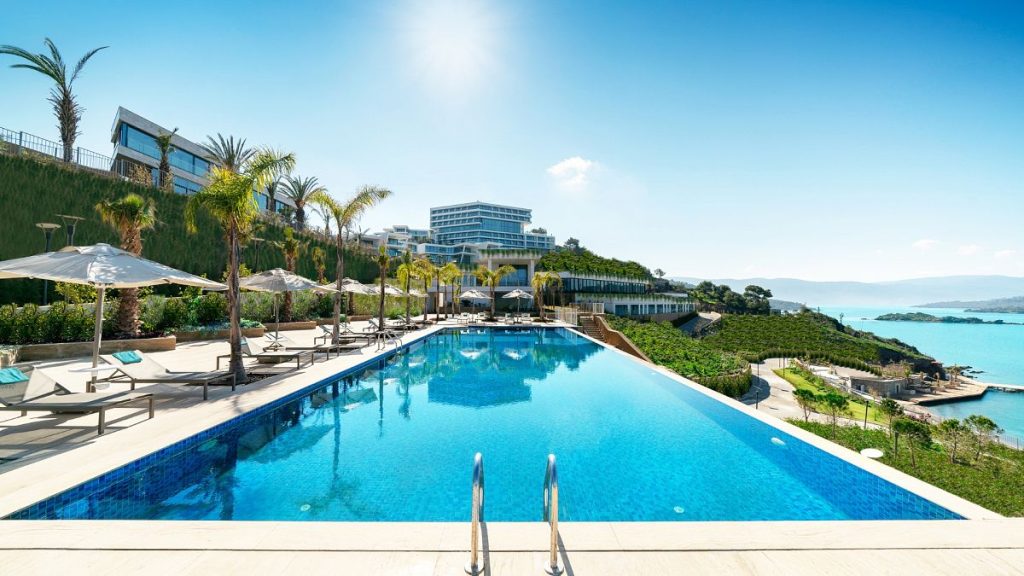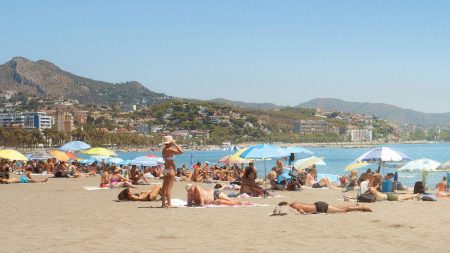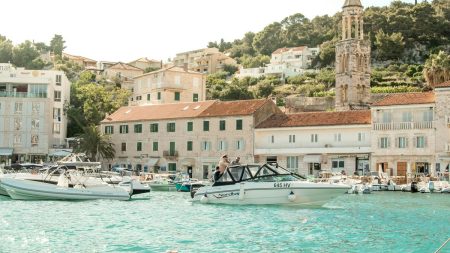Greece, a nation renowned for its idyllic islands and breathtaking coastline, is grappling with a growing conflict between its thriving tourism industry and dwindling freshwater resources. The country’s parliament is currently debating legislation that would permit coastal hotels to fill their swimming pools with seawater, a measure aimed at alleviating the strain on freshwater supplies, particularly during the peak tourist season. This proposed legislation comes in response to increasingly severe drought conditions that have gripped the nation for the past two years. The initiative seeks to establish a regulatory framework for the extraction and utilization of seawater for swimming pools, prioritizing the conservation of precious freshwater resources. However, the proposal has sparked debate, raising concerns about potential environmental impacts and the efficacy of such a measure.
The urgency of water conservation in Greece is underscored by the alarming decline in annual rainfall. Studies reveal a 12% decrease in rainfall between 1971 and 2020 compared to the preceding seven decades. This trend, exacerbated by climate change, poses a significant threat to the nation’s water security. The Aegean Islands and Crete, popular tourist destinations, are particularly vulnerable, having experienced a dramatic 20% reduction in rainfall. With tourism being a vital pillar of the Greek economy, attracting nearly 33 million visitors and generating €28.5 billion in revenue in 2024, the strain on water resources is only expected to intensify. This situation highlights the inherent tension between a booming tourism sector and the sustainable management of natural resources. The Greek government is under increasing pressure to reconcile these competing demands and develop a more sustainable tourism model for the future.
The proposed seawater pool legislation is not without its detractors. Environmental groups and scientists have voiced concerns about the potential ecological consequences of discharging chemically treated seawater back into the marine environment. The current proposal lacks specific quality standards for this discharge, raising fears about the potential for harmful chemicals, such as chlorine, to disrupt the delicate balance of marine ecosystems. Chlorine, a common disinfectant for swimming pools, is toxic to marine life, and the discharge of chlorinated saltwater could also alter salinity levels, further stressing marine organisms. Moreover, the lack of safeguards against sewage contamination in the proposed legislation adds another layer of concern. The physical process of constructing the necessary pipelines for seawater extraction and discharge also poses risks to the seafloor, potentially damaging sensitive habitats.
Adding to the complexity of the issue, critics argue that the impact of swimming pools on water resources has been overstated. Studies on islands like Mykonos and Paros indicate that pools account for only 6% of total water consumption. This statistic raises questions about the effectiveness of the proposed seawater solution in addressing the broader issue of water scarcity. Opponents argue that focusing on more comprehensive water management strategies, such as addressing leaks in the water distribution system and promoting water-efficient agriculture, would yield greater benefits. They suggest that the seawater pool proposal is a superficial solution that diverts attention from the underlying systemic issues contributing to water shortages.
The debate surrounding the seawater pool legislation reflects a broader conversation about the future of tourism in Greece. The country is increasingly recognizing the need to balance economic growth with environmental sustainability. The influx of tourists, while vital to the economy, also places immense pressure on the nation’s infrastructure and natural resources. The current situation underscores the urgency of developing a more sustainable tourism model that minimizes its environmental footprint. This could involve promoting eco-tourism, implementing stricter regulations on water usage, and investing in water-efficient technologies.
Moving forward, Greece faces the complex challenge of finding a sustainable path for its tourism industry. The proposed seawater pool legislation, while potentially offering some relief to strained freshwater resources, is not a panacea. Addressing the root causes of water scarcity requires a multifaceted approach that includes comprehensive water management strategies, investments in water-efficient technologies, and a shift towards more sustainable tourism practices. The debate surrounding this legislation serves as a crucial reminder of the delicate balance between economic development and environmental stewardship, a balance that Greece must strike to ensure its long-term prosperity and the preservation of its natural beauty.














